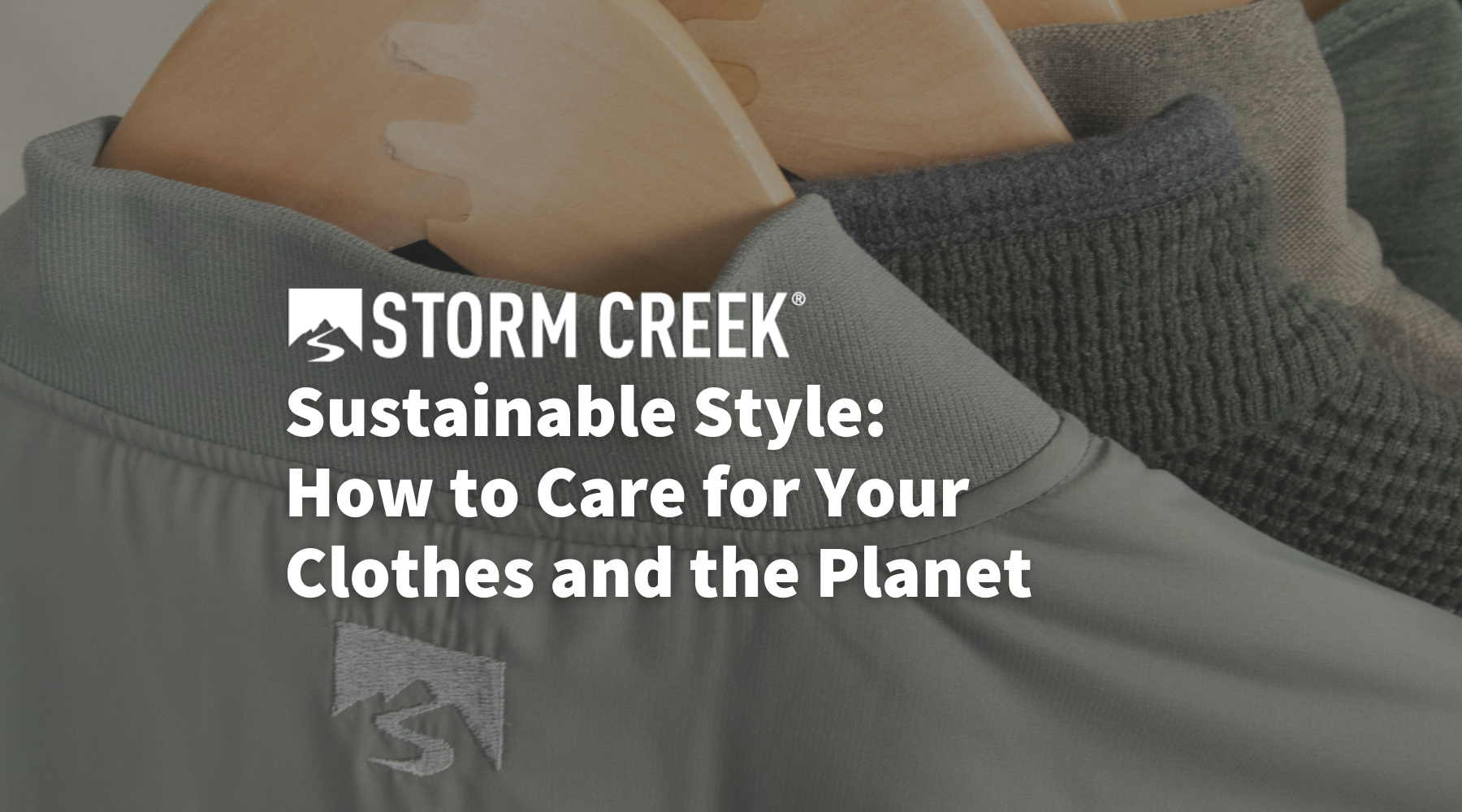In our fast-paced world, taking a moment to care for our clothing can have lasting benefits—for both your wardrobe and the planet. By adopting simple, sustainable practices, you can extend the life of your garments, reduce waste, and lessen your environmental impact. Here are some eco-friendly tips for caring for your clothes:
1. When to Wash
Did you know that each washing shortens the life of a garment? By washing clothes only when necessary, it not only saves time but also reduces water and energy consumption.
According to the Environmental Protection Agency (EPA), the average washing machine uses about 41 gallons of water per load. By washing less frequently, you can save thousands of gallons of water each year and reduce your carbon footprint.
2. Washing Tips
Sorting clothes and following care labels are essential steps in prolonging garment life. Get to know what you wear!
Synthetic Fabrics and Microplastics
Synthetic fabrics, offer various benefits such as durability, elasticity, moisture-wicking properties, and ease of care; however, these fabrics are known to shed the most microplastics during washing.
Reducing Microplastic Pollution
Washing them less frequently can significantly reduce microplastic pollution. Using a Guppyfriend bag or Cora Ball can help capture these microplastics, preventing them from entering water systems.
Sustainable Alternatives
While synthetic materials aren’t completely going away anytime soon, there are alternative options like recycled polyester that offers several environmental benefits when compared to virgin polyester:
- Reduces Plastic Waste: Recycling plastic bottles into polyester fibers helps divert plastic waste from landfills and oceans, contributing to waste reduction and environmental conservation.
- Energy Savings: The production of recycled polyester consumes less energy compared to virgin polyester. According to studies, recycled polyester can save up to 59% of energy and reduce greenhouse gas emissions by 32% compared to producing virgin polyester.
- Water Conservation: The manufacturing process of recycled polyester requires less water compared to virgin polyester production, helping conserve freshwater resources.
- Decreased Dependency on Petroleum: By using recycled plastic as a raw material, recycled polyester reduces the reliance on petroleum-based resources, promoting a more sustainable and circular economy.
Other washing tips:
- Wash with cold water and on shorter cycles to save energy. About 90% of the energy the washing machine uses goes towards heating the water.
- According to the Sierra Club, every household that switches to cold water washing could eliminate about 1,600 pounds of carbon dioxide a year.
- Washing clothes on a hot cycle uses 75% more energy than cold water and warm water is also more likely to break down dyes and cause shrinkage.
- Wash shirts less often if you wear them with a layer between them and your skin.
- Wash clothing inside out to keep color from fading.
3. Use Earth-Friendly Detergents
Choosing laundry products without harmful chemicals not only benefits your health but also reduces toxins in waterways. Petrochemicals in traditional detergents can contribute to water pollution and harm aquatic life. Switching to eco-friendly detergents can help mitigate these effects.
4. Eco-Friendly Stain Removal
Using eco-friendly stain removal methods reduces the use of harsh chemicals that can be harmful to the environment. Websites like Kind Laundry and Sustainable Living Association offer easy-to-follow guides for removing stains sustainably.
Other cleaning tips:
- You can use half the prescribed amount of detergent and add ½ a cup of baking soda to get clothes just as clean.
- To avoid using chlorine bleach, substitute one half-cup of vinegar to the final rinse. Vinegar is a natural brightener that won’t wear out the fibers of your clothing.
5. Air Dry
Air-drying clothes not only saves energy but also preserves fabric quality. The Sierra Club estimates that drying clothes accounts for about 6% of the average household's energy use. By air-drying clothes outdoors or on a rack, you can reduce your carbon footprint and lower energy bills.
6. Avoid Ironing
Hanging clothes in a steamy bathroom can help remove wrinkles naturally, reducing the need for energy-intensive ironing. According to Energy Star, ironing consumes significant electricity, contributing to household energy use.
7. Proper Storage
Storing clothes properly can prevent damage and extend their lifespan. Avoiding direct sunlight, using fabric-padded hangers, and providing adequate space between garments can keep clothes fresh and in good condition for longer. Plus, properly hanging and folding clothes also reduces the need for ironing and helps maintain their appearance.
8. Consider Dry-Cleaning Alternatives
Traditional dry-cleaning methods use toxic chemicals like Perchloroethylene (PERC), which can be harmful to human health and the environment. Choosing dry cleaners that use environmentally friendly cleaning solutions or spot-cleaning at home can reduce your exposure to toxins.
9. Reuse and Repurpose
Repurposing old clothes as cleaning rags or donating them to thrift stores reduces waste and promotes circular fashion. The Ellen MacArthur Foundation reports that extending the life of clothing by just nine months can reduce carbon, waste, and water footprints by 20-30%.
By adopting these eco-friendly practices, you not only care for your clothes but also contribute to a healthier planet. Sustainable fashion starts with conscious consumer choices and mindful clothing care. Let’s do better, together.

